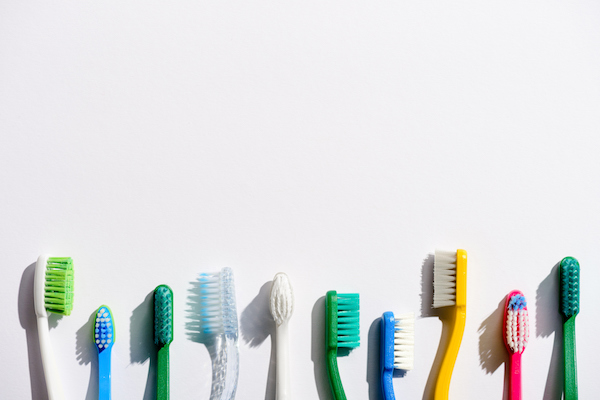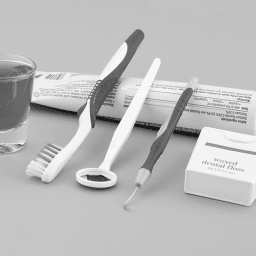 Managing dental health and Parkinson’s is an integral part of living well. Regular dental care can minimize your risk of experiencing pain and discomfort, but most importantly, it can reduce the risk of infection, which can be a significant stressor on the body when coupled with Parkinson’s-related challenges.
Managing dental health and Parkinson’s is an integral part of living well. Regular dental care can minimize your risk of experiencing pain and discomfort, but most importantly, it can reduce the risk of infection, which can be a significant stressor on the body when coupled with Parkinson’s-related challenges.
In this post, we provide essential information and tools so you can learn more about dental health and Parkinson’s and improve your dental health.
Medications
A variety of medications may cause a decrease in the production of saliva or dry mouth (xerostomia). Saliva is important as it helps prevent tooth decay by neutralizing acids produced by bacteria in your mouth as well as by washing away food debris in your mouth. Dry mouth is a common problem, the effects of which can range from being a minor nuisance to something that has a major impact on your oral health, your overall health and your quality of life.
Dry mouth is a common side effect of anticholinergic Parkinson’s medications, as well as it can be a side effect of carbidopa/levodopa and related Parkinson’s medications. Dry mouth may also occur with the use of medications prescribed for depression, anxiety, sleep issues, urinary issues and orthostatic hypotension.
Treatments
Botulinum toxin (Botox® ) injections to control drooling (sialorrhea) can sometimes be too effective at reducing excess saliva production, resulting in symptoms of dry mouth.
Motor Control
Decreased fine motor control, reduced hand strength and slow movements (bradykinesia) associated with Parkinson’s can make flossing and brushing teeth difficult tasks. As well, stiffness associated with Parkinson’s (rigidity) can lead to less effective tooth brushing movements overall. Individuals experiencing motor side effects from medications like involuntary twisting (dyskinesias) may also have difficulties regularly performing proper oral care.
Good oral and dental hygiene help prevent dental problems, including cavities, gum disease, pain and bad breath. It may also provide additional benefits like improved chewing, swallowing, speaking, appetite, enjoyment of food and capacity for taste.
Untreated cavities can be especially important to address for people with Parkinson’s, since they can lead to painful infection, stress on your body and exacerbate other challenges related to swallowing and speech.
Visit Your Dentist
Schedule semi-annual (every six months) appointments with your dentist to assess your oral health. Let your dentist know that you are living with Parkinson’s. Your dentist should be able to recommend brushing and flossing strategies, product modifications or specialized products to assist in preventing cavities and improving your dental care.
For your next appointment, take this For Dentists to educate your dentist on your Parkinson’s-specific needs and to start the conversation about dental health and Parkinson’s.
Consult a Professional
There are multiple indicators of dental problems that should be addressed quickly before they get worse. These include mouth pain, difficulty chewing, recurring dry mouth and sensitivity to warm or cold. If you experience any of these, schedule a dental appointment to address the root cause.
If you find that the physical movement of brushing is problematic or ineffective due to rigidity, fine motor control or tremors, schedule a consultation with an occupational therapist who can provide simple modifications to your oral hygiene routine and adaptive equipment suggestions.
Improve Your Dental Routine
It is critical to brush your teeth for two minutes twice a day. It is also important to floss once a day to remove food and bacteria between your teeth. If you find that brushing and flossing are difficult due to your Parkinson’s symptoms, we have created this Dental Worksheet with suggestions for modifying your oral care.
Watch this quick video: What’s a Simple, Daily Oral Hygiene Plan for People with Parkinson’s?
For Motor Control
If rigidity limits your brushing ability and effectiveness, plan to brush your teeth around medication ON times regardless of the time of day. Additionally, performing exercises selected for you by an occupational therapist can work to strengthen muscles and improve fine motor control used in tooth brushing. A good occupational therapist can also help you make simple modifications to your toothbrush and other tools for oral care to make them easier to use.
Seek Simple Treatments
Over-the-counter treatments that improve dry mouth, temperature sensitivity and other minor dental issues may be recommended by your dentist to quickly alleviate these symptoms.
Worksheets: Dental Worksheet , For Dentists









Why is it important for dentist to know that I have a dbs?
Hi Susan – It’s a good idea to let your dentist know if you have any invasive surgery planned. To see a list of some of the medical safety issues related to DBS, here’s a document created by UC Davis Medical Center.